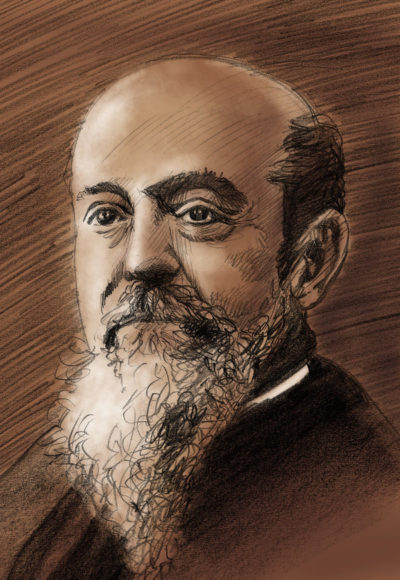
The work of 20th century sociologist Vilifredo Pareto introduced the idea of “elites” and studied their role in politics and society. One of his theories was that leadership cycles between “foxes,” who lead towards decentralization, plurality, and skepticism, and “lions,” who emphasize nationalism, established ways, and hierarchical structures.
I revisited Parteo’s theories through a recent article by Hugo Drochon in the New Statesman, spurring a reflection on political theory. 
Provocatively titled, “Why the elites always rule,” the article caught my attention because the Center is preparing to release its biennial analysis of demographic information about the North Carolina General Assembly.
Druchon applied Pareto’s theories to recent national and international political movements. He observed that national leadership in the U.S. and the U.K. has shifted from the foxes (Barack Obama and George W. Bush) to the lions. However, despite the elevated populistic rhetoric coming from the new lions, Donald Trump, Boris Johnson, and Marine Le Pen clearly come from elite backgrounds.
As the title suggests, the punch line is that elites always dominate politics. The difference is the degree to which they appropriate the people’s voice to gain power.
Druchon’s article got me thinking about North Carolina and whether or not elites have dominated the North Carolina landscape. I realized that to understand that better, we have to know more about who has represented us and represents us now. We have to know where they come from, what they have experienced, and what makes them tick.
I was recently speaking with Duke University Public Policy Professor Nicholas Carnes about his research on legislative pay, which is featured in this week’s Friday at Five post.
Carnes shared an anecdote about U.S. Senator Orrin Hatch from some research he did on the background of members of Congress. Hatch is a Republican Senator from Utah. He is a conservative guy from a conservative state, yet Hatch has often crossed the aisle and voted with Democrats on the issue of health insurance.
Carnes suggests that a contributing factor to this surprising pattern may have been that Hatch spent five years as a janitor and security guard without health insurance.
However, basic surveys of Congress members’ pre-election occupation list Senator Hatch as an attorney, which was his career immediately prior to public service. Had Carnes not done his in-depth research into Hatch’s background, I would have never known about Senator Hatch’s working class experience or known to reference it in considering his policy stances.
The follow-up question: Should we consider Orrin Hatch elite? Does his stint in the working class cut against his later professional career and his status as the longest serving Republican Senator in history. If not, at what point did he transition from working class to elite? Graduation from college? Completion of law school? After his first term in the U.S. Senate?
The answer is subjective, but the question highlights the importance of understanding more about the people who represent us.
Building on the Base
Every two years, as a new legislative session begins, the Center compiles information about the legislators who represent the state. In the coming weeks we will release the information about the state Senate and follow shortly thereafter with information about the state House.
Because the N.C. General Assembly is a part-time legislative body, the Center has traditionally gathered and will continue to track information about representatives’ outside vocation.
Occupational information works great if you want to know that there are three farmers in the Senate. Furthermore, doing that kind of data collection over time is useful for measuring that the number of lawyers in the N.C. Senate is below the historical average but they still make up more than 20 percent of the body. We will continue to provide this information.
But this kind of data collection misses the “Orrin Hatch was a janitor” angle.
When we list Senator Louis Pate as “retired,” we overlook the facts that Senator Pate is actually twice retired—once from a career in the military and once from a career in business. We also miss the context that he has served as two stints as a local mayor. In so doing, we would miss the complexity of his work experience that informs how he thinks and votes about issues.
As we compile the demographic data on the General Assembly, we will attempt to layer-in some of this context and allow for more context about the elites and non-elites who make policy. We hope that you will give us feedback about how we are doing and help us expand the way we collect and share this kind of information.

Andrew Holton is a board member and contributor to the N.C. Center for Public Policy Research.
Weekly Insight State Government

